Safety has probably never been such a huge concern to parents as it is nowadays.
Being aware of your child’s whereabouts is crucial for keeping them out of harm’s way and can provide peace of mind, especially since we often can’t be with our kids all the time due to other responsibilities.
The good thing is that we can count on a GPS tracker for kids.
Even though many people aren’t very familiar with GPS trackers and their capabilities, awareness has been increasing in recent years. As a parent worried about your child’s safety and location, you definitely don’t want to miss out on our solution.
And if you have no idea what a GPS tracking app is, fear no more: we’ll cover the whole thing here, so this article is informative for every mom and dad out there.
Let’s begin.
- What Is A GPS Tracker?
- Other Features of GPS Trackers For Kids
- Our Choices For The Best GPS Trackers For Kids
- GPS Tracker – FAQ
- What is a GPS tracker for children?
- How does a GPS tracker for children work?
- Are GPS trackers for children safe to use?
- What types of GPS trackers are available for children?
- How do smartwatch GPS trackers work?
- What are wearable tags for children?
- Can I track my child’s location in real-time with a GPS tracker?
- What features should I look for in a GPS tracker for my child?
- Can I track my child’s location even if they don’t have a smartphone?
- How accurate are GPS trackers for children?
- How long does the battery last on a GPS tracker for children?
- Can I set up safe zones or geofences with a GPS tracker for my child?
- Can my child tamper with or remove the tracker?
- Are GPS trackers for children waterproof?
- Can I use a GPS tracker for my child’s safety without their consent?
- Are there any legal considerations when using a GPS tracker for my child?
- How can I ensure my child’s privacy with a GPS tracker?
- Can I use a GPS tracker for my child’s older siblings or relatives with special needs?
- Can I track my son’s location when they are at school or in a public place?
- How do I set up a geofence on a GPS tracker for my child?
- How accurate are GPS devices like these for kids?
- Can my child turn off or tamper with the tracker?
- Can I use a tracker for my child with multiple caregivers or family members?
- Our Final Thoughts On The Best GPS Trackers
What Is A GPS Tracker?
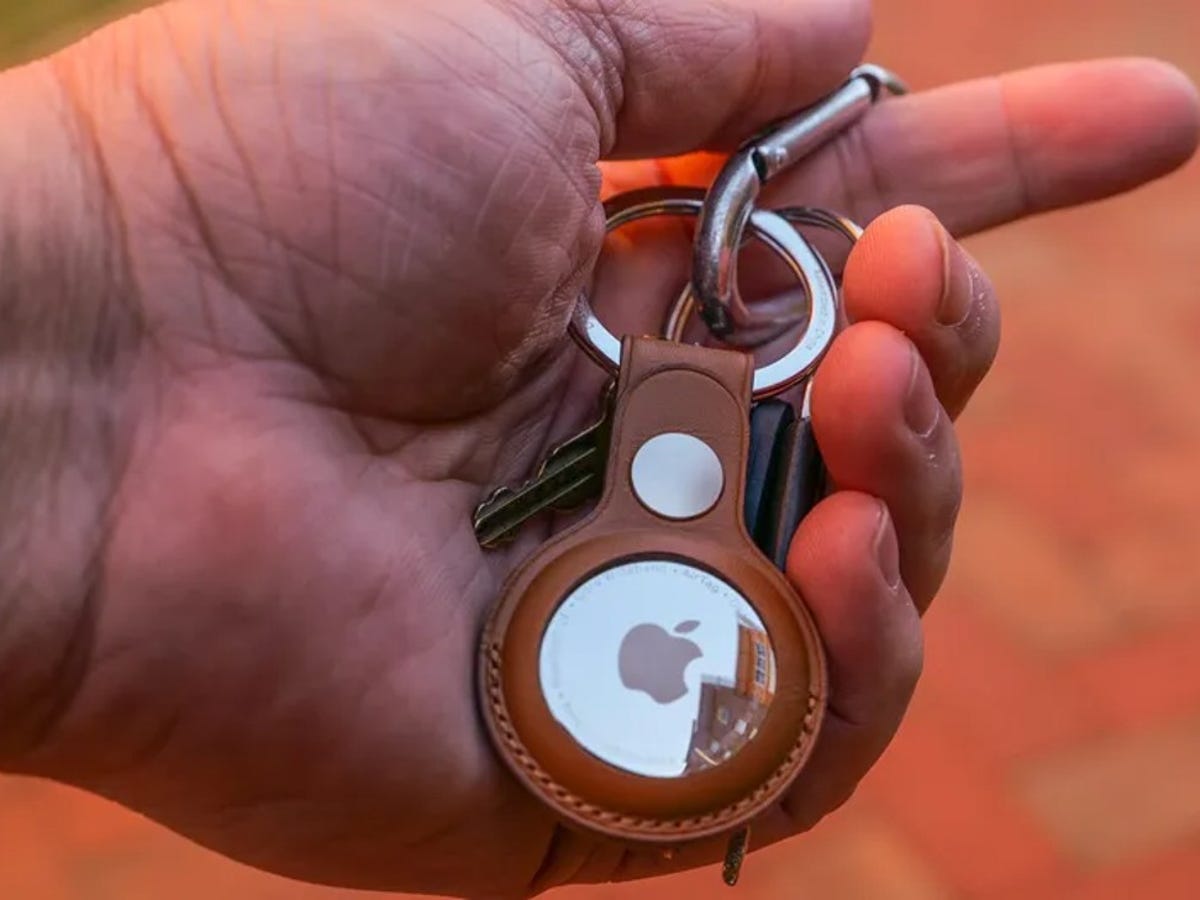
To put it into simple words, they’re like GPS devices, but instead of simply showing you a route to where you want to go, it actually gathers your child’s whereabouts and informs you through a control panel.
So you know exactly where your kid is at all times.
A child’s GPS tracker can also provide detailed information about their location history, including the dates, times, and duration of each visit made to a specific place. This is extremely helpful when determining if your child is honest with you.
And there’s a whole lot more a tracking device can offer you.
To make the deal even sweeter, the best GPS trackers usually come packed with other features to make your kids’ safer.
That’s what we’ll cover in the next sections.
Other Features of GPS Trackers For Kids
The list will vary according to the GPS tracker of your choice, but we’ll go through the most useful and common features to find. The whole set of functions is definitely more than one needs to keep tabs on their loved ones or even on older kids.
Here we go.
Geofencing

There’s a complementary feature most kids’ GPS trackers have named Geofencing.
Basically, what it does is that you can set up a safe zone for your kids on a map through the GPS tracker control panel.
Then, you’ll have a choice.
It’s possible to receive a notification when your child enters that zone or if it’s a better fit for your needs if they leave that area.
This way, you can use the GPS tracker to find where they’re going once you receive the notification and prevent something undesirable from happening.
SOS Mode

When the SOS button is pressed, it either alerts you that something is wrong with your child or enables you to initiate an immediate voice call, swiftly addressing the threat or issue.
The use of voice communication can be vital in cases your child needs emergency services right away, which makes this SOS button a must-have feature.
Some GPS trackers also have a video calling feature.
Shock Proof

It’s well-known that children can sometimes be careless with their belongings, and it’s not unusual for them to break electronics. Therefore, ensuring that the GPS tracker you choose for your child is shock-resistant is crucial for a positive user experience.
Water Resistant
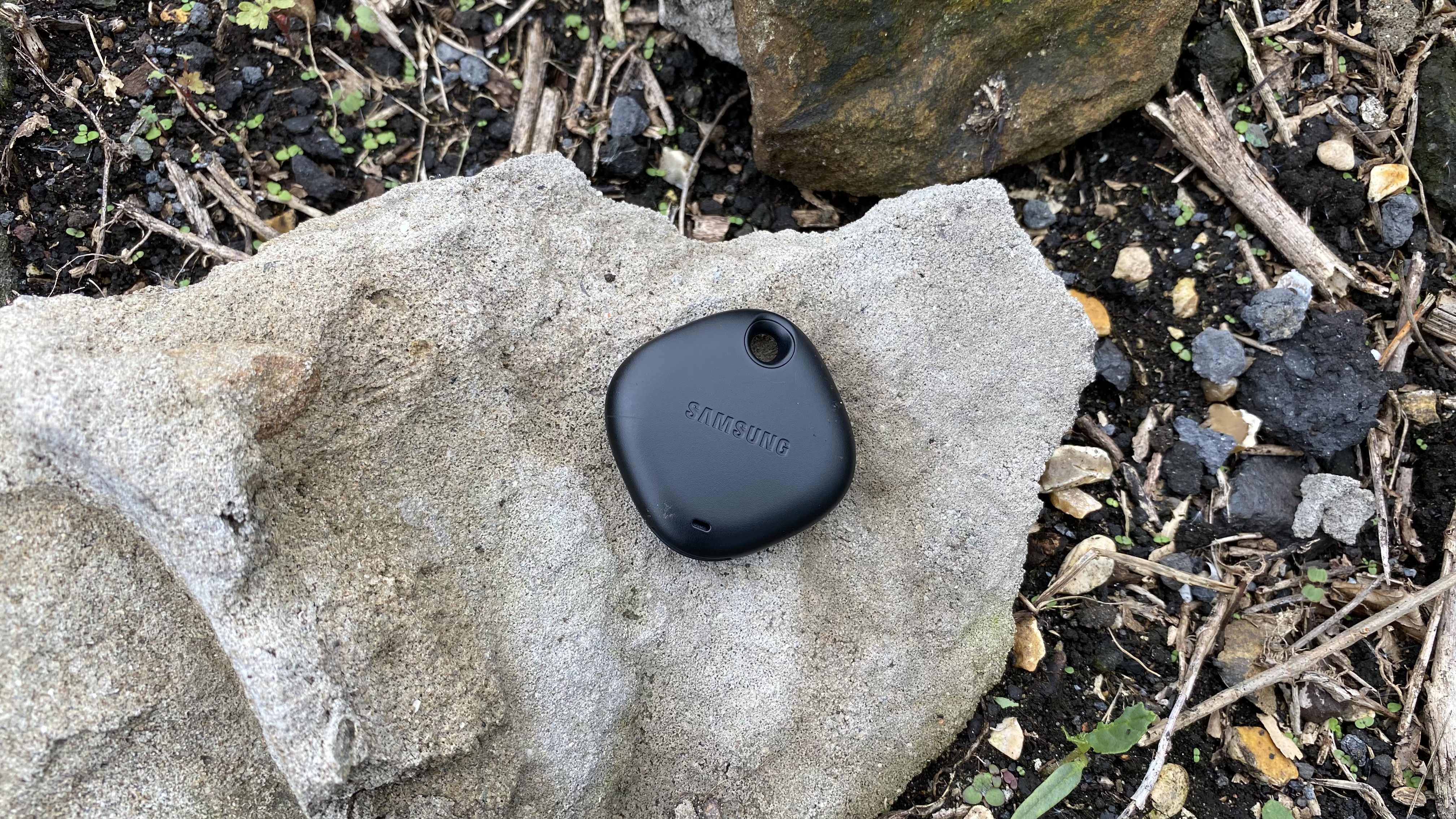
Some of these apps are specifically designed for kids who frequently visit parks or friends’ houses with pools or other water bodies. This ensures that the apps won’t stop working when you need them most.
Most of the trackers we’ll discuss later on include this feature.
Battery Life
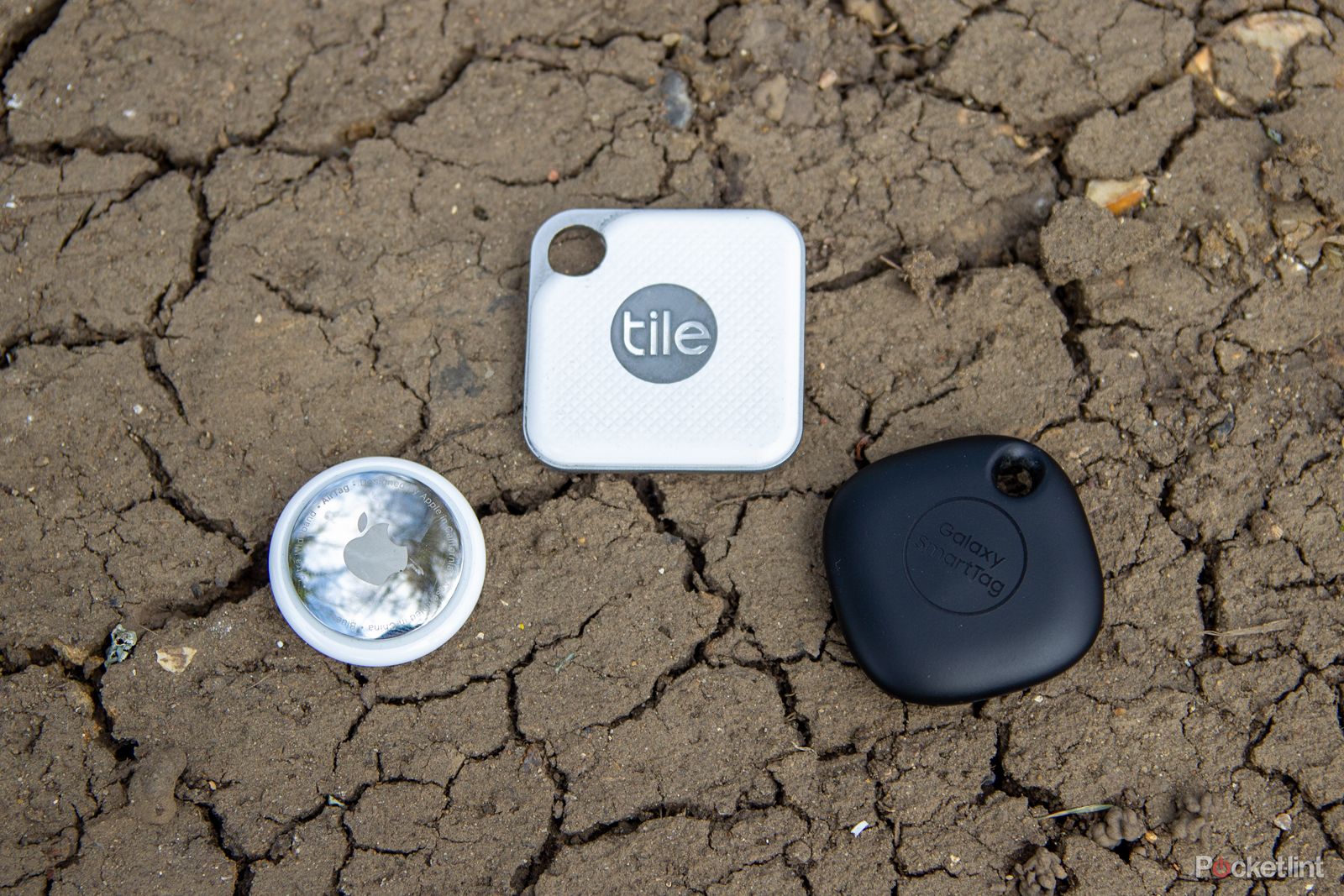
Like any electronic device, even the best GPS watch has limited battery life. If your child will be away for an extended period, this is likely the first factor you need to consider.
After all, if you don’t have it turned on, there is no way to have this real time location tracking.
Other Features
These features may not be as crucial, but some GPS trackers for kids also provide headphone support, voice call minutes, one-way or two-way talk functions, and compatibility with different operating systems and carriers.
Now let’s move on to our list of options for the best GPS tracker you might want to consider.
Our Choices For The Best GPS Trackers For Kids
To ensure a comprehensive analysis, we’ll consider the above-mentioned features, the device’s ease of use, pricing, plans, and any other relevant aspects each platform may have.
#1 Jiobit Smart Tag
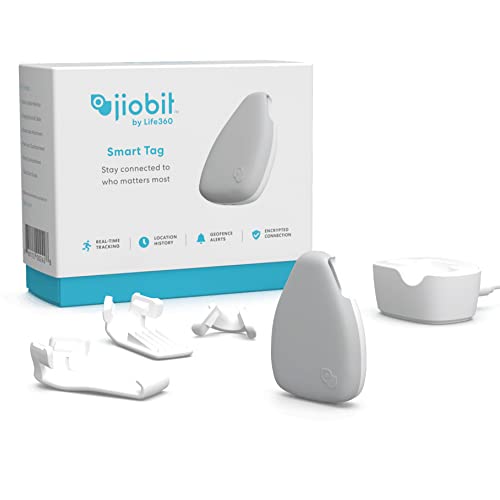
As expected, choosing a kid’s GPS tracker app that best fits your needs will depend on what type of services you want the most. If you are looking for a tag device, Jiobit Smart Tag can be a pretty wise choice.
Here’s what it offers:
- Lightweight (~18 grams)
- Long-lasting battery life: up to one week
- Bluetooth connection to caregiver’s phone
- Waterproof
- Shockproof
Jiobit will let you know your child’s location at all times. It is quite portable, and you can attach it to your kid’s shoes, bags, backpacks, belt clips, etc. Our main complaint about this GPS device is that it doesn’t offer a SOS button.
Jiobit Smart Tag also requires a monthly subscription: $13. If you’re willing to go for a two-year commitment, the monthly fee drops to $9.
#2 AngelSense Kids GPS Tracker

AngelSense Kids GPS Tracker comes in two different ways. The first option is the smart tag that can be easily attached to your child’s backpack, belt, keychain etc. The second one is a smartwatch embedded with a SIM card that cannot be removed unless you use a special key.
In terms of its functions, here’s what you get:
- Real-time tracking with maps
- Updated ETA
- A non-removable option
- Assistive speakerphone
- Lightweight and size (smaller and lighter than a cookie)
- SOS call request at the click of a button
- Emergency detection: late arrivals & unknown places
- Location tracking shared at a click of a button
This is another wonderful pick to ensure your children are safe and sound from when they take the school bus to when they return home.
Just put it in your child’s pocket or wherever you believe works the best, and you’re in control.
AngelSense is very famous among parents (or legal guardians) who have autistic children that may require special attention. It’s a great option for the young and even for older children with its helpful features.
#3 Apple Watch SE and Apple Airtag

Not too many people know, but there is an Apple device that may help you. Actually, two of them.
The first option is the Apple Watch SE, a smartwatch with extra features.
Take a look at its main aspects:
- Waterproof (50 meters)
- Optical heart sensor
- Emergency SOS
- Speaker
- Microphone
Now, it’s important to mention that Apple does not advise people to use these smartwatches and smart tags as a tracker.
However, although Apple isn’t a company focused on parental controls, its devices are a good choice, especially if you have an older child who won’t just take the watch off.
Now, let’s check the Apple Airtag.
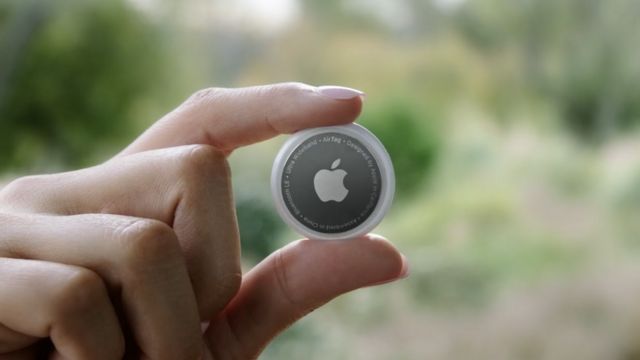
Just like the other smart tags we’ve mentioned so far, this is a great way to keep tabs on your kids. Basically, you place this child’s device inside your child’s backpack, and you’ll know its location using Apple Find My Device.
But there are more features.
You can get directions to where your child is, as well as play a sound to find the tag. Another cool thing is that you can get location notifications based on some configurations of your choice.
If your child leaves with Apple Airtag on him or her, you can rest assured you’ll know their itinerary.
Other highlights:
- Long battery life: up to one year (non-rechargeable)
- Waterproof
- Customizable
- Integrated with Find My Device
- Super light: 11 grams
- Bluetooth tracker for proximity findings
- Accessibility options
- Built-in speaker
It doesn’t matter if you’d rather count on cell phones or tags; Apple has what you need. The cost is $29 per tag, or you can buy a bundle of 4 tags for $99. There is no monthly fee for this Apple device.
And of course Apple is known for having an overall quality many other GPS trackers don’t really have.
#4 Samsung SmartThings Tracker
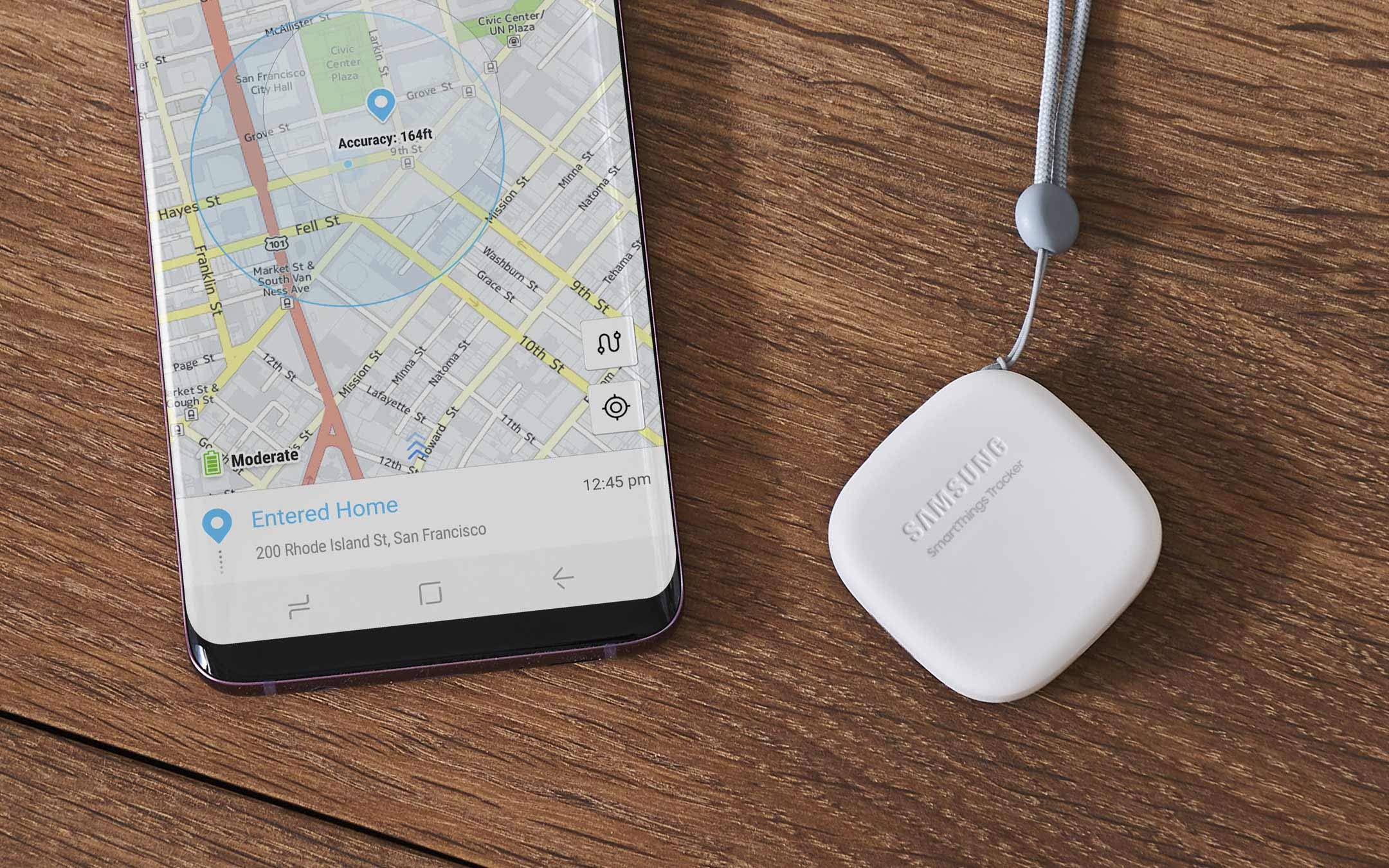
You know how this works, if Apple has a device, so does Samsung. It’s also a small tracker that can get the job of monitoring your kid’s location done. You can check every relevant detail right below:
- Samsung SmartThings Tracker App
- Water-resistant IP68
- Geofencing
- Light and small
Prices start at $29 for the older models and $39 for the model +. It’s worth mentioning that this GPS tracker for kids can also be used with several other devices as well as connected to a cellular service for extra features.
#5 Verizon Gizmowatch

Another good choice on our list of Bluetooth trackers for knowing your child’s location is the perhaps less famous Gizmowatch. You can already see it needs a Verizon plan which will come with a monthly fee that may vary in price according to your choices, but it does offer a lot, as you can see below:
- Parental control for approved contacts
- Geofencing
- Easy-to-use app
- School Mode
- SOS button
- Camera and video calling
- Calculator
- Timer/Stopwatch
- Jumping game
It’s important to note that only Gizmowatch 3 offers everything on the list at the cost of $149 (plus your Verizon plan). Gizmowatch 2 costs $99 but offers a part of those functions, which we’d say it’s not a wise choice at a price of $99.
#6 Geozilla GPS Tracker
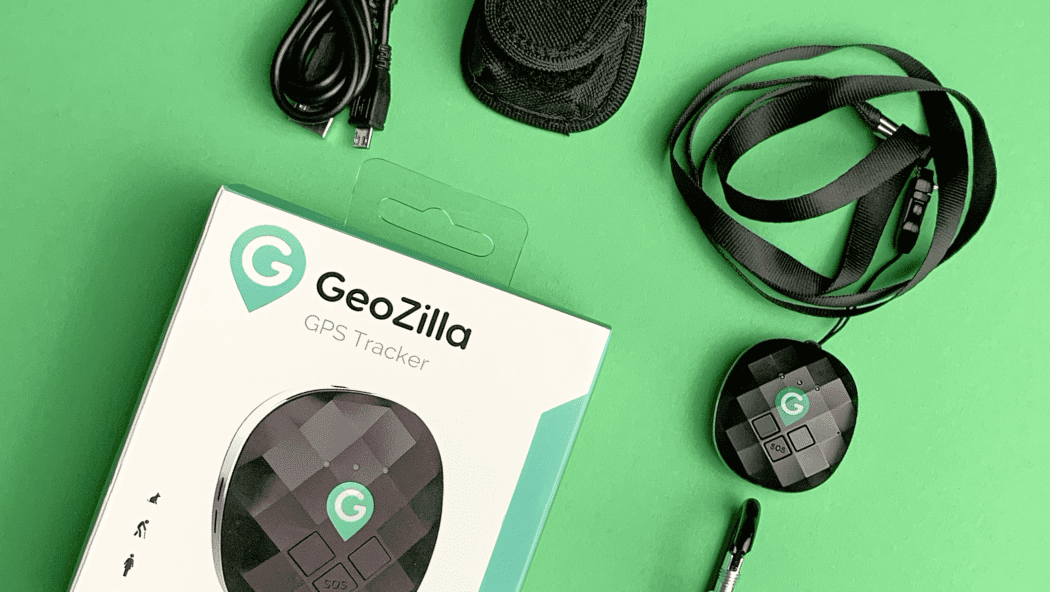
Geozilla GPS tracker also offers two ways to work as many GPS trackers do, but with a difference: it can either be connected to a smart tag or work with an installed app on the cell phones you want to track. In this second case the battery life will depend on your phone and will need Wi-Fi to function properly.
Let’s check what it has to offer:
- Real-time location tracking on a map
- Tiny tag
- Crash detection
- Driver coaching
Geozilla’s app costs $2.99/week; if you want a tag, it will go up to $4.75/week.
These are the best choices to get your kids safe in 2023. Now, if you still have questions, we have prepared a FAQ section below. Of course, you can also drop us a comment if there’s anything else you didn’t find an answer to.
GPS Tracker – FAQ
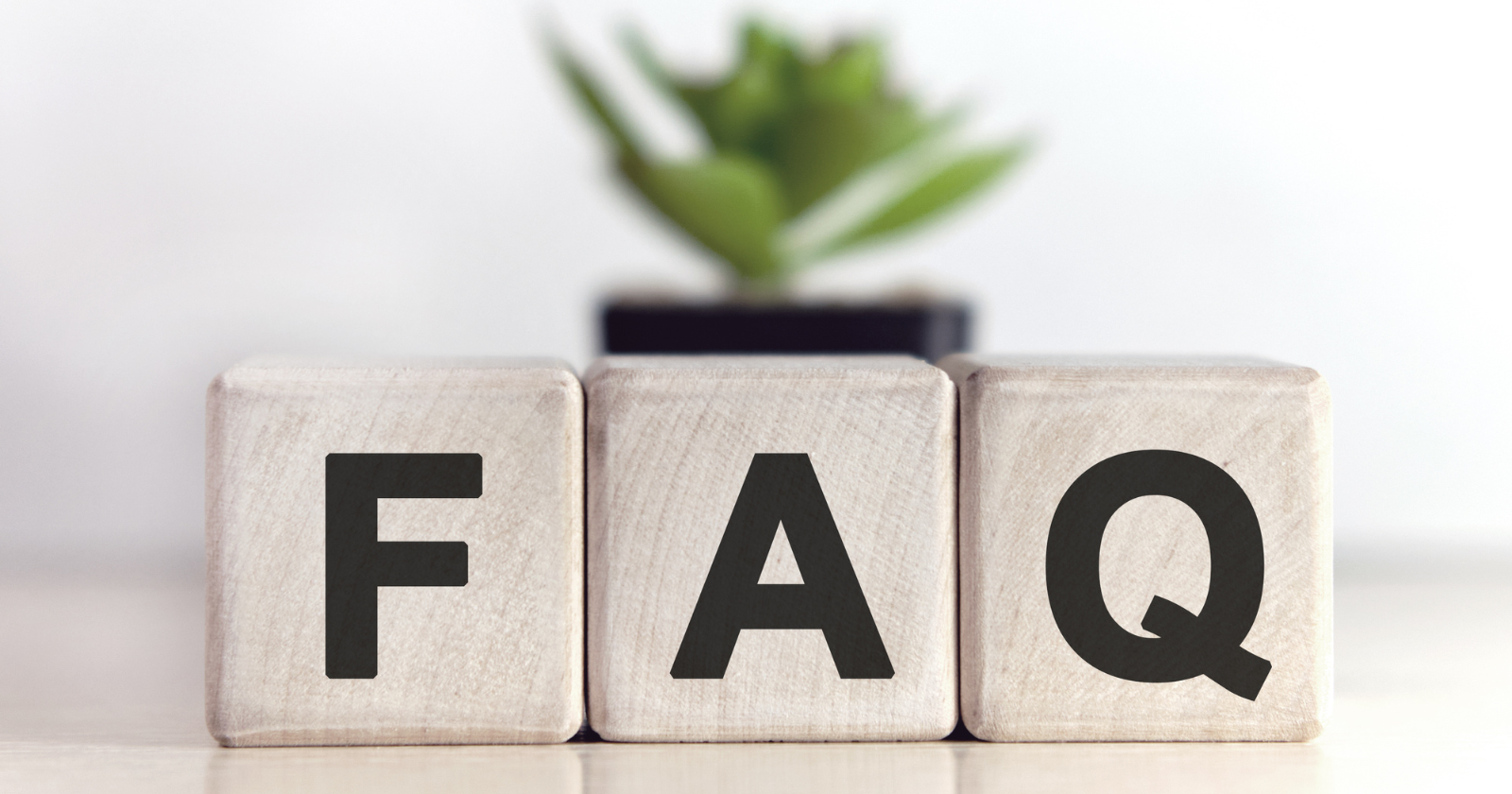
What is a GPS tracker for children?
A GPS tracker for children is a device or application that uses Global Positioning System (GPS) technology to track the location of a child in real-time.
How does a GPS tracker for children work?
A GPS tracker for children uses GPS technology to determine the child’s location and sends the location data to a parent’s or guardian’s device, such as a smartphone or computer.
Are GPS trackers for children safe to use?
Yes, GPS trackers for children are safe to use when used responsibly and in compliance with relevant laws and regulations. It is important to ensure that the child’s privacy and security are protected.
What types of GPS trackers are available for children?
There are different types of GPS trackers available for children, including smartwatches, wearable tags, and mobile applications that can be installed on a smartphone.
How do smartwatch GPS trackers work?
Smartwatch GPS trackers for children are wearable devices that are worn on the child’s wrist like a regular watch. They usually have built-in GPS technology and allow parents to track the child’s location using a companion app on their smartphone.
What are wearable tags for children?
Wearable tags for children are small devices that can be attached to the child’s clothing, backpack, or other personal belongings. They use GPS technology to track the location of the child and can be accessed through a smartphone app.
Can I track my child’s location in real-time with a GPS tracker?
Yes, most GPS trackers for children provide real-time tracking, allowing parents or guardians to monitor the location of your child in real-time using a companion app or web portal.
What features should I look for in a GPS tracker for my child?
Some features to consider when choosing a GPS tracker for your child include real-time tracking, geo-fencing (setting virtual boundaries), SOS button for emergencies, two-way communication, battery life, and durability.
Can I track my child’s location even if they don’t have a smartphone?
Yes, GPS trackers for children do not require the child to have a smartphone. The tracking information is usually sent to the parent’s or guardian’s device, such as a smartphone or computer.
How accurate are GPS trackers for children?
The accuracy of GPS trackers for children depends on several factors, including the quality of GPS signal, the device’s hardware and software, and the environment. Generally, GPS trackers can provide location accuracy within a few meters.
How long does the battery last on a GPS tracker for children?
The battery life of a GPS tracker for children varies depending on the device, its usage, and its settings. Some trackers may last a few days, while others require more frequent charging.
Can I set up safe zones or geofences with a GPS tracker for my child?
Yes, many GPS trackers for children allow parents to set up safe zones or geofences, which are virtual boundaries on a map. Parents will receive notifications if the child enters or exits the designated safe zones.
Can my child tamper with or remove the tracker?
Some trackers for children are designed to be tamper-proof, while others may have tamper alerts or notifications. However, it’s important to educate your child about the purpose of the tracker and the importance of not tampering with it.
Are GPS trackers for children waterproof?
Some trackers for children are waterproof or water-resistant, while others may not be. It’s important to check the specifications of the device and follow the manufacturer’s instructions regarding water exposure.
Can I use a GPS tracker for my child’s safety without their consent?
It’s generally recommended to have open communication with your child and obtain their consent before using a tracker for their safety. Discuss with them the purpose of the tracker and how it can help ensure their safety. It’s important to respect their privacy and seek their input.
Are there any legal considerations when using a GPS tracker for my child?
Yes, it’s important to be aware of local laws and regulations regarding the use of trackers for children. Some areas may have specific laws governing the use of tracking devices, including consent requirements, age restrictions, and privacy laws. Make sure to comply with all applicable laws and regulations.
How can I ensure my child’s privacy with a GPS tracker?
Choose a GPS tracker that prioritizes data security and encryption to ensure your child’s privacy. Additionally, only share tracking information with trusted individuals, such as family members or caregivers. Educate your child about the importance of not sharing their location information with strangers.
Can I use a GPS tracker for my child’s older siblings or relatives with special needs?
Yes, these trackers can be used for older siblings or relatives with special needs to help ensure their safety and well-being. Just like with tracking for children, it’s important to obtain their consent and respect their privacy.
Can I track my son’s location when they are at school or in a public place?
It’s important to be mindful of privacy and legal considerations when tracking your son’s location in public places. Some schools and public places may have specific policies or restrictions on the use of trackers. Always follow the rules and regulations of the school or public place when using a GPS tracking tool for your child.
What should I do if my child goes missing despite using a GPS tracker?
If your child goes missing despite using a tracker, immediately contact law enforcement and follow proper protocols for reporting a missing child. Provide them with all relevant information, including the GPS tracking data, to assist in the search efforts.
How do I set up a geofence on a GPS tracker for my child?
Setting up a geofence typically involves defining a virtual boundary or safe zone on the GPS tracker’s mobile app or web portal. Once the geofence is set up, you can receive notifications when your child enters or exits the designated area. The process for setting up a geofence may vary depending on the GPS tracker and its accompanying app or portal, so it’s important to follow the manufacturer’s instructions for proper setup.
How accurate are GPS devices like these for kids?
These softwares can provide varying levels of accuracy depending on the device and the surrounding environment.
In open outdoor areas with clear sky visibility, trackers can typically provide accurate location information within a few meters. However, in indoor or obstructed areas, the accuracy may be reduced.
It’s important to choose a tracker with good GPS reception and accuracy for reliable tracking.
Can my child turn off or tamper with the tracker?
Some trackers for kids may have features that allow children to turn off or tamper with the device.
It’s important to choose a tracker that has secure settings and tamper-proof features to prevent unauthorized access or tampering.
Look for trackers with password protection, anti-tamper alerts, or other security measures to ensure the device remains functional and reliable for tracking your child’s location.
Can I use a tracker for my child with multiple caregivers or family members?
Yes, many trackers for kids allow multiple caregivers or family members to access the tracking information. This can be useful for parents who share custody or have multiple caregivers involved in their child’s care.
However, it’s important to consider the privacy and consent of all parties involved and ensure that everyone knows and agrees to use the tracker for the child. Clear communication and consent among caregivers are essential to ensure responsible and respectful tracker use.
Finally, our conclusion.
Our Final Thoughts On The Best GPS Trackers

As parents, the safety and well-being of our children are always our top priorities. With the increasing concerns about child safety today, many parents are turning to modern technology for added peace of mind.
One such technology that has gained popularity recently is using location-tracking devices for kids, such as smartwatches, tags, and apps. These devices utilize GPS technology to provide real-time location information, allowing parents to keep track of their child’s whereabouts and ensure their safety.
We have delved into the benefits, considerations, and common questions related to these devices.
From the convenience of being able to monitor the location of your kid in real-time to the added safety and security measures they provide, location-tracking devices have proven to be valuable tools for many parents.
One of the key advantages of using location-tracking devices for kids is the peace of mind they offer to parents.
With the ability to know their child’s whereabouts at any given moment, parents can feel reassured and confident about their children’s safety, especially in unfamiliar or crowded places.
This added layer of security can be particularly useful in situations where parents may not be physically present with their child, such as during school hours, extracurricular activities, or when a child is under the care of a babysitter or caregiver.
Additionally, location-tracking devices for kids can help promote healthy communication and trust between parents and their children.
By setting clear expectations and guidelines about using these devices, parents can establish open and honest conversations with their kids about safety, responsibility, and privacy.
This can foster a sense of trust and mutual understanding, allowing parents and children to work together as a team to ensure the children’s safety.
However, it’s important to acknowledge that using location-tracking devices for kids also comes with considerations and potential limitations.
Privacy concerns, potential misuse, and the need for consent are some factors parents need to consider when using these devices carefully. Respecting the child’s privacy and obtaining their consent, depending on their age and maturity level, is crucial in using these devices ethically and responsibly.
In conclusion, location tracking devices for kids have become increasingly popular as a means to enhance child safety and give parents peace of mind. These devices offer real-time location tracking, easy monitoring, and added security measures for parents to keep track of their child’s whereabouts.
However, it’s important to carefully consider the ethical implications, privacy concerns, and legal regulations associated with using these devices. Parents should establish open communication, set clear expectations, and obtain consent from their children to ensure responsible and ethical use.
As technology advances, location-tracking devices for kids will likely become more sophisticated, offering even more features and functionalities.
It’s important for parents to stay informed about the latest developments and always refer to the manufacturer’s instructions and guidelines for the specific device they choose.
With proper use, location tracking devices can be valuable tools for parents to enhance their child’s safety and provide peace of mind in today’s fast-paced world.
Remember, the safety and well-being of our children should always be a top priority, and location-tracking devices can be one of the tools that assist us in achieving that goal.
Add comment